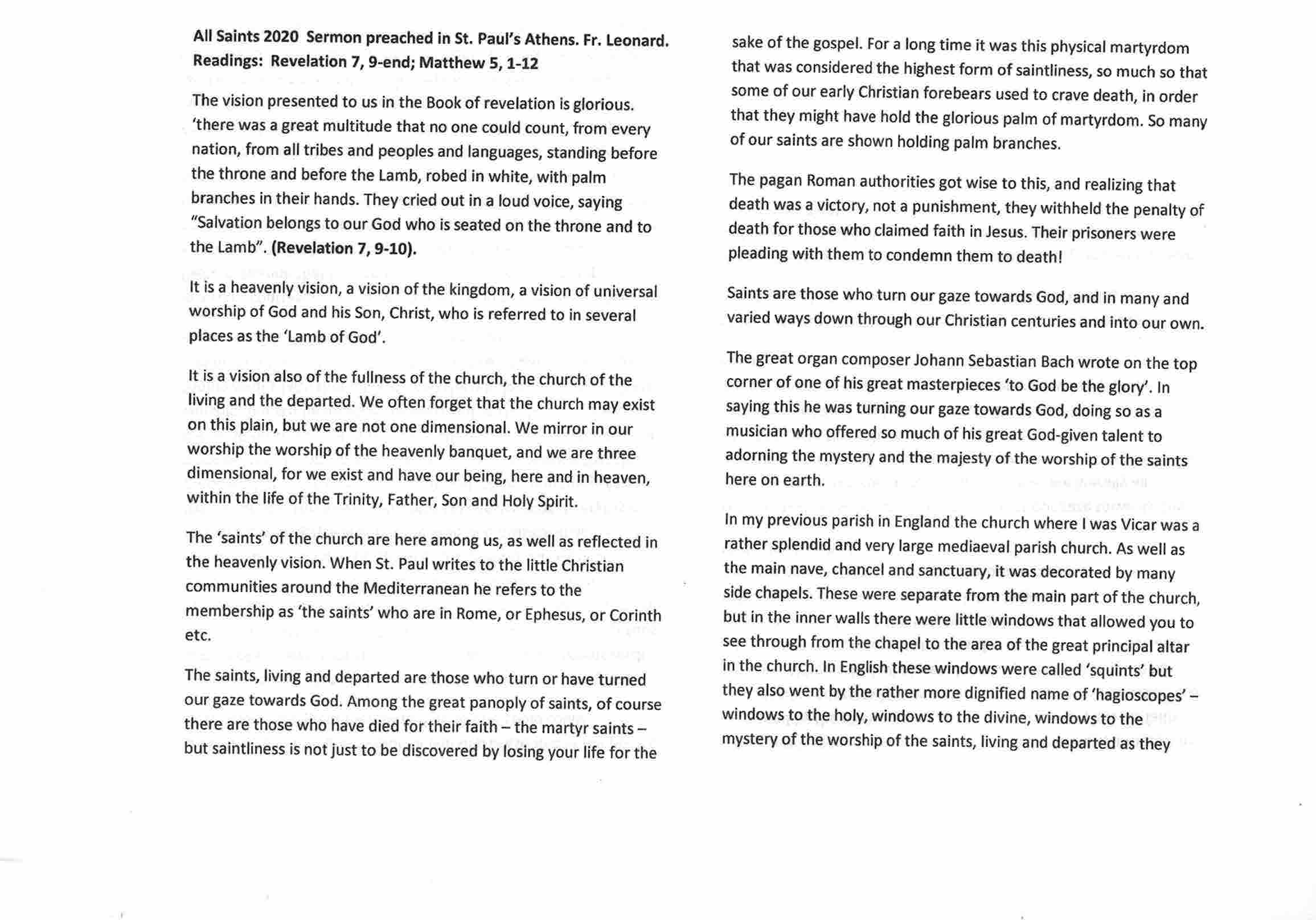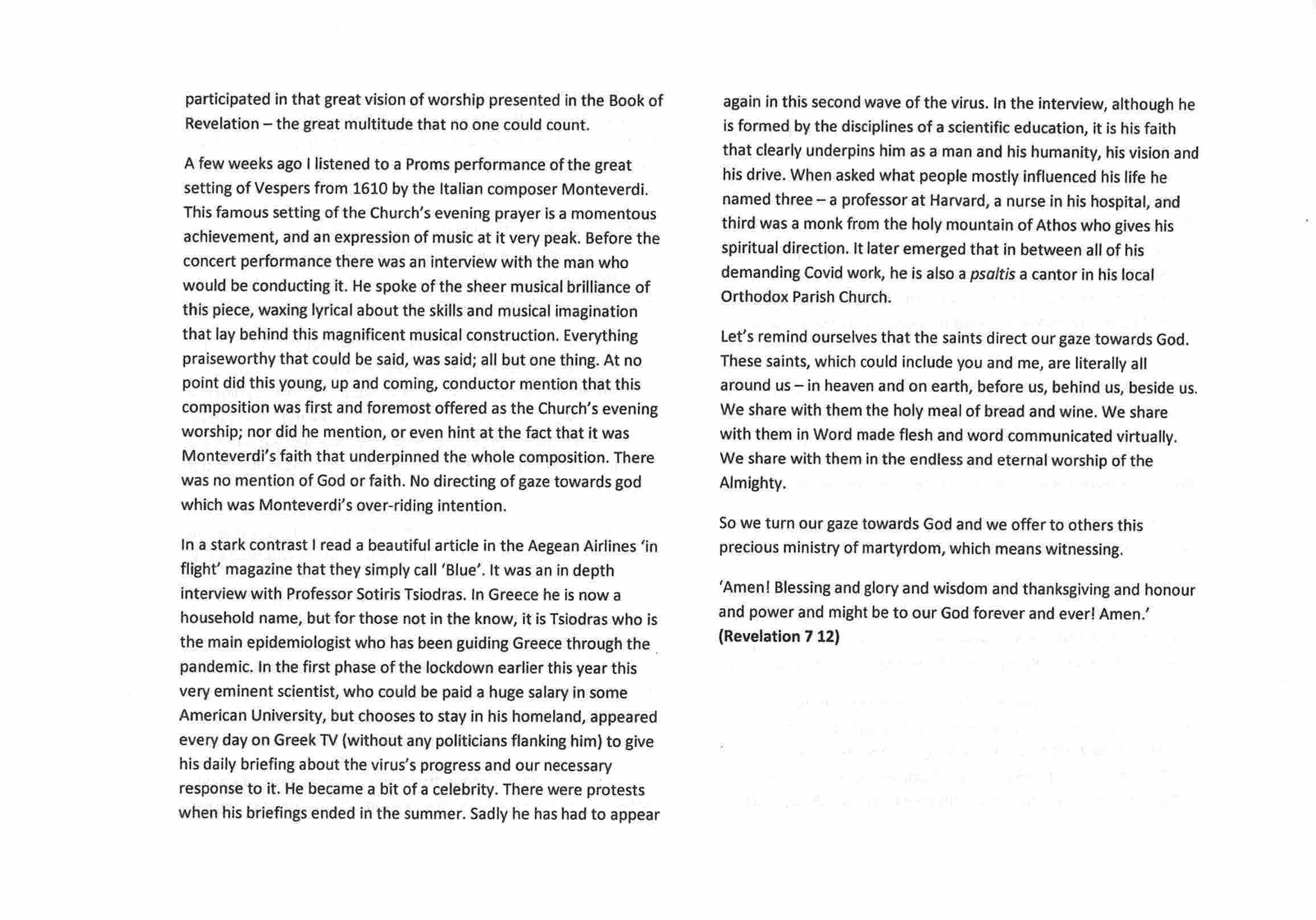Sermon for the Third Sunday of Advent – 13th December 2020: Isaiah 61, 1-4,8-11; John 1, 6-8, 19-28
Fr Leonard Doolan – St Pauls Athens
‘What sayest thou of thyself?’ One of the great Anglican church music composers of the late 16th century is Orlando Gibbons. His professional life took him via a circuitous route to Westminster Abbey where he was one of the organists. He died young after taking ill on a journey to Canterbury, at the age of 45, and he is buried in Canterbury Cathedral where there is a monument to him.
Gibbons was a fairly prolific composer of both secular madrigals, and of church music. One of the anthems he composed is called ‘This is the Record of John’ and the text is that of the conversation between John the baptizer and the priests and levites in today’s gospel reading.
‘What sayest thou of thyself?’ is one of the questions set to music – rather more poetically phrased in the 16th century than our version this morning, ‘Who are you?’
We started to think about John the baptizer last week as the gospel directs us to John baptizing Jesus in the river Jordan and John proclaiming, as he does in Matthew, Mark and Luke, that he has come to make the path straight.




